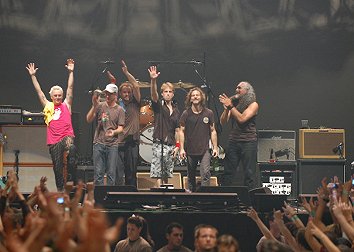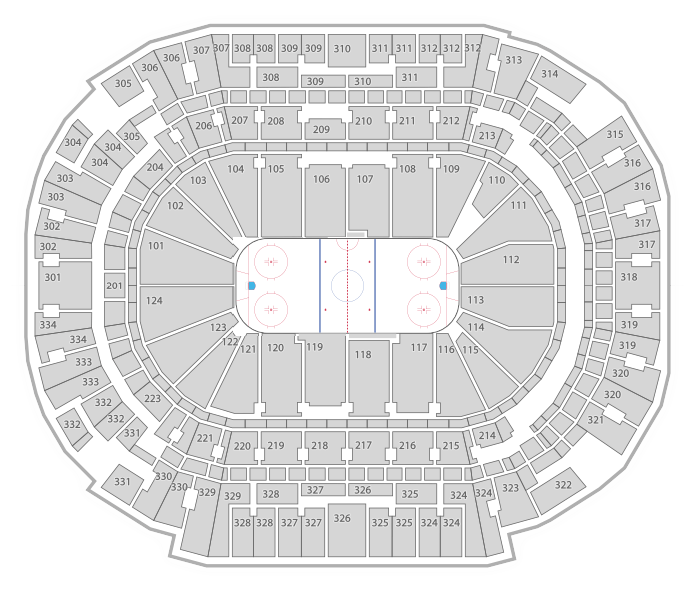
I recently went to hear the West Point Band play their A Night At The Movies concert at Trophy Point in West Point, NY. The band played crowd-pleasers like the themes from Star Wars and Indiana Jones, as well as more recent soundtrack hits like "Let It Go" from Frozen and "Everything Is Awesome" from The Lego Movie.
The concert got me thinking about the power of film music. The right music can ingrain itself so deeply into narrative that the two feel inseparable. What would Darth Vader be without the "Imperial March"? John Williams absolutely nailed his characterization.
It's not just character that music can solidify in film. There's setting -- think Howard Shore's "Shire Theme" from The Lord of the Rings trilogy for place, or the popular songs on the soundtrack to Forrest Gump for time. Film music can also heighten narrative tension, bolster the empathy we feel for characters, or highlight structure, like when "Mercedes' Lullaby" plays at the end of Pan's Labyrinth to provide a sense of closure.
Of course, music in these cases is not the dominating aspect in movies -- it is a key ingredient in the larger stew that is the film itself. In this way, film music has been divisive among composers. Igor Stravinsky, for one, felt that "music is too high an art to be a servant to other arts.” Bernard Herrmann, on the other hand, famous for his scores to Alfred Hitchcock films like Psycho and Vertigo, was vehement in embracing the cooperative relationship between music and narrative in film.
Whatever your opinion of the artistry of film music, you can't argue its powerful impact on the experience of a movie. Our staff picked some of our favorite scores and soundtracks to share with you. Check out our picks below.
The Big Lebowski
1998
directed by Joel and Ethan Coen
As a cinematic art piece, The Big Lebowski has it all. Comedy, drama, suspense, social commentary, character development, and a superb soundtrack. Great scenes become even greater because of the mood set by great music that was chosen to accompany it, and music isn’t just there in the background; it’s important to the lives of the characters.
From the opening “Tumbling Tumbleweeds” by Sons of The Pioneers to the Townes van Zandt version of The Rolling Stones’ “Dead Flowers” in the credits, the entire movie is deeply connected to music. Among the musical highlights are the Gipsy Kings’ Spanish version of “Hotel California” when we’re introduced to “the pederast” Jesus, as well as Kenny Rogers’ “Just Dropped In (To See What Condition My Condition Was In)” and Bob Dylan’s “The Man in Me” during The Dude’s dream sequences.
One of the big themes in the movie is The Dude’s hatred of The Eagles and love of Creedence Clearwater Revival - a conviction that has influenced a generation of music lovers in the wake of the movie. There are also hilarious moments that reference such diverse musical styles as German electronic music and a dance cycle performed to Erich Wolfgang Korngold’s classical composition “Glück das mir verblieb.”
A great film makes you look at the world you thought you knew in a different way. The Big Lebowski certainly does that, especially as it pertains to the culture of music.
--Brad Bershad
Watchmen
2009
directed by Zach Snyder
The labyrinthian suckitude of Suckerpunch aside, Zack Snyder is one of the most ambitious directors currently working. Choosing to tackle adaptations of celebrated works such as Dawn of The Dead, 300, and Man of Steel -- nerdy pursuits, one and all -- ensures that he will be under some serious scrutiny, but that doesn't deter him.
His biggest strength, perhaps, is the use of iconic songs to create iconic scenes, which is evidenced best by his song choices for the film version of Alan Moore's Watchmen. The Comedian's death is arguably one of the greatest scenes in any comic, and Nat King Cole's "Unforgettable" brought it to life in a remarkable way. His funeral follows, truly heartbreaking with "The Sound Of Silence" playing softly over the cemetery gates. The film continues with a staggering lineup of legendary songs, including "The Times They Are A-Changin'," "Me And Bobby McGee," Billie Holiday's "You're My Thrill," and "Ride Of The Valkyries" as performed by the Budapest Symphony Orchestra.
Sometimes the soundtrack is a little on the nose -- as when Hendrix sings "two riders were approaching and the wind begins to howl" and we see Nite Owl and Rorschach walking across the Antarctic -- but the use of powerful music only serves to bolster the film. Snyder plays to his strengths, letting music do the emotional heavy lifting.
--Evan Petersen
Mulholland Drive
2001
directed by David Lynch
Even in my neverending confusion over Mulholland Drive, one thing seems to make the movie make sense, and that's Angelo’s Badalamenti’s atmospheric score. It focuses on one crucial main theme, which first plays over a limousine ride at night along the winding LA road of Mulholland Drive. The theme is haunting and unsettling, and it hints at the film’s altered reality with its bleeding synthesizer.
Badalamenti’s real brilliance comes through as he manipulates the theme throughout the film. He sneaks it in at moments of apparent fulfillment or love, corrupting them. The theme’s transformation at the end -- from heavily synthesized to a beautiful strings arrangement -- draws out the sadness and the human element in the melody. It completes the film’s journey through mystery and fantasy into tragedy and realism.
--Jarrett Hoffman
Halloween
1978
directed by John Carpenter
Originally composed by John Carpenter, the 1978 Halloween soundtrack is one of my favorites of all time. My dad got me into horror films as a kid, and he always used to play that CD in the car. It was usually during the month of October, but sometimes just because. There was one year on Halloween night when he carved a killer jack-o'-lantern and put it in a window that you could see from the street, and he lit that thing up while blasting the main theme on repeat. It was perfect, so I guess I have some really fond memories attached to it.
What's really impressive is that Carpenter composed the entire score based off three simple notes, which helped make the extremely low-budget film into the horror classic it’s remembered as today. Before the music was added, Carpenter (also the director) held an early screening, and it totally bombed. Many viewers agreed that the movie just was not scary. It wasn't until after the score was added—along with the high-pitched, screeching sound effects—that the horror element really kicked in.
--Sydnie Aldrich
Juno
2007
directed by Jason Reitman
If there’s any soundtrack that sounds like it was curated by the film’s central character, it’s Juno's. Each song manages to play an important part in the movie. The opening song, Barry Louis Polisar's homemade acoustic “All I Want Is You," immediately sets up the theme that runs through the title character: Juno remains herself despite everything she went through.
Some tracks, like The Moldy Peaches’ “Anyone Else But You,” are even shown as Juno’s favorites. Moldy Peaches frontwoman Kimya Dawson is heavily featured on the album. Although her songs are simple and aren’t always in tune, they’re quirky and charming, and they work seamlessly with the DIY aesthetic of the film.
--Alex Ash
Pulp Fiction
1994
directed by Quentin Tarantino
Pulp Fiction is known for its bizarre storylines, quirky dialogue, and, of course, its soundtrack. It’s an eclectic assortment of songs by a range of artists, covering genres like American rock and roll, surf music, pop, and soul. The diversity of genres is what makes Pulp Fiction so unique and timeless.
The most renowned song on the soundtrack is “Misirlou” by Dick Dale and His Del-Tones. This song plays during the opening credits and has in some way become the film’s theme song. And who could forget one of the most famous scenes, when John Travolta and Uma Thurman compete in a dance-off to Chuck Berry’s “You Never Can Tell”? The song is unforgettable, adding such a provocative element of sound to the narrative.
--Kara Bertoncini
The Good, the Bad, and the Ugly
1966
directed by Sergio Leone
Ennio Morricone’s score for The Good, the Bad, and the Ugly transforms the barren desert of the Old West into a fabled land of mythology and intrigue. Of all the film scores I’ve listened to, this one resonates the most.
Morricone chose unique instrumentation for the score. Due to budgetary restrictions, he utilized atypical instruments. The mouth harp and the electric guitar were used alongside some orchestral sounds. Whistles and whip cracks can be heard inside those of brass and woodwinds.
The score is also one of the rare examples of a movie’s length being fitted to the score. Leone had Morricone begin composing his score before the production began and had the filming edited to the music. Where else can you find such a tight marriage of music and storytelling? The triumphs and failures of the characters are perfectly immortalized not only in the actors’ iconic performances, but also in the music that accompanies their every move.
--Josh Cohen
Singles
1992
directed by Cameron Crowe
The heyday of the early ‘90s grunge scene was an exciting time to grow up in as a teenager, and when the Singles soundtrack came out in June of 1992, every grunge kid had to have it. This was the first time I heard “Breath and a Scream” by Pearl Jam, “Would” by Alice In Chains, and “Drown” by The Smashing Pumpkins. Lesser known groups like The Screaming Trees and Mother Love Bone were also included on the soundtrack, giving us an opportunity to expand our music IQs.
Yes, Singles was a really good movie, and most of us were Matt Dillon fans, but the music was more important to us. We didn’t mind that the soundtrack helped to popularize our music because every radio station started to play it on their airwaves. If you had to choose a soundtrack to summarize the early ‘90s grunge scene, Singles would be the choice.
--Francesco Marano
Forrest Gump
1994
-directed by Robert Zemeckis
When most people think of Forrest Gump, they immediately think of the film’s memorable quotes or Tom Hanks’ unforgettable performance, but the 1994 classic also has a wonderful soundtrack. Alan Silvestri’s beautiful score sets the tone for each scene throughout the film, and the main orchestral suite is a highlight.
The soundtrack also features an exquisite collection of 32 of the biggest hits from the past 40 years, including “Hound Dog” by Elvis Presley, “California Dreamin’” by The Mamas & the Papas, “Mrs. Robinson” by Simon & Garfunkel, and “Sweet Home Alabama” by Lynyrd Skynyrd. As the film’s hero journeys through the turbulent 1960s and into the ‘70s and ‘80s, the film’s music helps establish authenticity to the cinematic story. Not only does the audience follow Forrest on the adventure of a lifetime, but they also venture on a wonderful musical journey.
--Mallory Delchamp
8 Mile
2002
directed by Curtis Hanson
When 8 Mile came out in 2002, I was 12 years old. I wasn’t even allowed to see it because it was rated R, so I went online and listened to the soundtrack over and over again. By the time I rented the movie from Blockbuster (remember those?), I already knew the words to a lot of the music that was featured in it.
The first single was Eminem’s “Lose Yourself,” which is one of the most inspirational rap songs ever made. Most people associate the timeless song with 8 Mile, but what some folks forget is that the second single was also a classic. Before “Wanksta” was a bonus track on 50 Cent’s classic Get Rich or Die Tryin’, it was the second single off of Music from and Inspired by the Motion Picture 8 Mile. In addition to multiple songs by Eminem and 50 Cent, the soundtrack also included appearances from Jay Z, Nas, Rakim, Macy Gray, and Gang Starr.
Later on, an additional soundtrack would be released called More Music from 8 Mile, including works by 2Pac, Biggie, and Outkast. The two compilations together, along with the unforgettable freestyles in the movie, make 8 Mile my favorite soundtrack of all time.
--Todd Levy
















